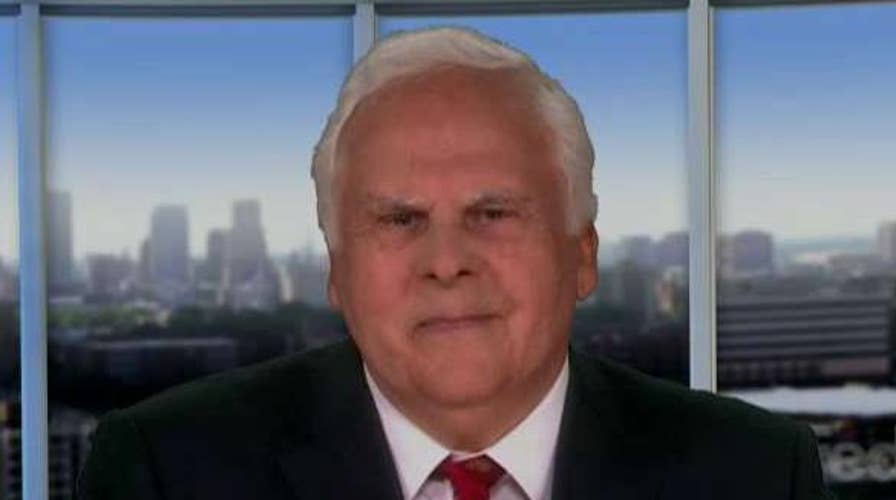Chairman and CEO Fred Smith explains why FedEx is suing the Trump administration
Shipping giant says it cannot police 'millions' of shipments and that new government regulations create 'impossible burden.'
A FedEx pilot was detained in China last week after items were found in his checked bag before he boarded a commercial flight, the company confirmed to Fox News on Thursday.
FedEx said former U.S. Air Force pilot Todd A. Hohn was later released, and it is working with Chinese authorities to understand what happened at the airport in Guangzhou.

Air Force Col. Todd Hohn, foreground, and pilots assigned to the 97th Air Mobility Wing are briefed on an exercise at Altus Air Force Base, Okla. (U.S. Air Force via AP)
Hohn was detained on Sept. 12 after pellets used in replica air guns were found in his checked bag, The Wall Street Journal reported, citing people familiar with the incident.
Chinese authorities are alleging that Hohn was illegally carrying ammunition, and they have opened a criminal investigation, according to The Journal.
FedEx said the pilot was later released, but his whereabouts are unknown. The Journal reported that Hohn was moved to a hotel and told that he can't leave mainland China until the investigation is over.
"We are working with the appropriate authorities to gain a better understanding of the facts," a company spokeswoman said in a statement to Fox News.
The episode comes with FedEx already caught up in trade tensions between the United States and China.
This week, FedEx CEO Fred Smith blamed slower worldwide economic growth on trade uncertainty. Shares of FedEx fell 12.9 percent Wednesday — their worst day since 2008 — after the Memphis, Tenn., company reported disappointing quarterly profit and cut its estimate of full-year earnings.
CLICK HERE TO GET THE FOX NEWS APP
Earlier this year, Chinese technology giant Huawei complained about deliveries that FedEx misrouted. Shortly after that, in June, FedEx sued the Commerce Department to stop enforcement of export rules that restrict shipments to Huawei and other entities. Huawei is on a list of companies barred from receiving U.S. technology without a special license from the Commerce Department.
The Associated Press contributed to this report.










































